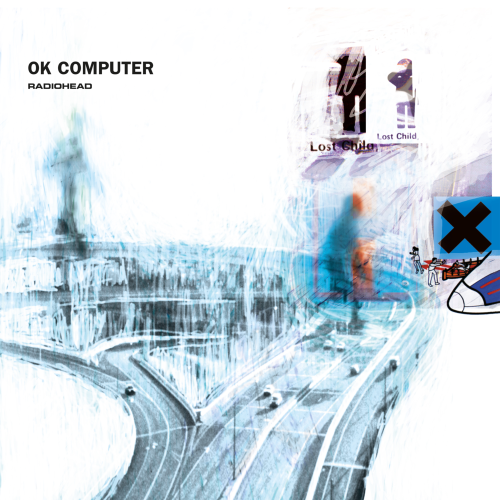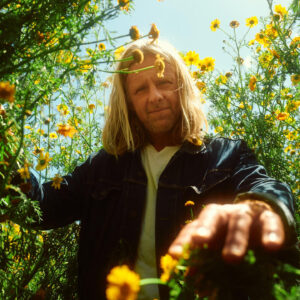Most 13-year old boys’ primary endeavors revolve around extracurricular sports and navigating budding romantic feelings for schoolmates. At 13, Thom Yorke, singer of British music icons Radiohead, was reduced to tears during a scene of Franco Zeffirelli’s 1968 adaptation of Romeo and Juliet.
Fast-forward 14 years.
Radiohead is on tour supporting their sophomore LP The Bends (serving as opening act for Alanis Morisette) when word comes that a new film adaptation of Shakespeare’s opus is in production and director Baz Luhrmann wants Radiohead to write a song (or two) for the film.
After viewing the short portion Luhrmann provided, singer Thom Yorke immediately realizes the direction in which the song should travel. The result is, as previously stated, sparse, haunting, and completely fitting for the film.
The song, while straightforward, is seemingly spliced into two distinct sounds. The first two verses and the (arguable) chorus is simple, B-minor acoustic 90s melancholy. You know, ‘everything is terrible and what’s the point’. This was, according to Yorke, an homage to Johnny Cash and particularly the elevated vocal volume of his At Folsom Prison record.
As the second verse ends you’re met with tummy-rumbling bass played through the scarce Shin-ei Companion FY-2 Fuzz Pedal. While you’ve since heard it on Radiohead tracks such as “The National Anthem” and “Myxomatosis”, this is the earliest example of Radiohead’s use of this recognizable effect. The goal, in their own words, was to ‘rip off
Portishead’.
The song’s lyrical theme revolves around the moment in the film in which the young couple chooses suicide over escaping and building a life together elsewhere. Maybe it’s for the best. Maybe 19 months after escaping they realize they’re growing apart.
Through suicide, as Yorke illustrates during the heart-wrenching climax, now we are one, in everlasting peace.
Maybe true love never dies, even if the lovers do.
In somewhat atypical fashion, the band decided to include the song on their history-making album, OK Computer. If you’ve heard the album and recognized how it has pushed every popular music envelope, then you already know how much of a departure the song is from the rest of the tracks. It rests right there at the midway point, like a deep breath after climbing a flight of stairs that includes navigating “Paranoid Android” and opening track “Airbag”.
Speaking of stairways, vocals for “Exit Music (for A Film)” were curiously tracked in the stairway of the band’s rented mansion on the outskirts of Bath, England. The stairway (and the mansion which houses it) belonged to none other than Jane Seymour (of Dr. Quinn, Medicine Woman fame). After hours of trying various effects and vocal techniques, Yorke decided that the natural reverb offered by the grand staircase would best suit the feel of the song.
The result does nothing but add to the haunting, desperate immediacy that the band wanted to convey.
As a testament to the song’s impact, according to Rolling Stone Magazine, artist Marilyn Manson one day walked out of a psychiatric facility in which he was receiving much-needed help. He stood atop a cliff and decided that “Exit Music (For A Film)” was the last song he wanted to hear before jumping. After listening to the song in its entirety, he felt enough hope and light that he simply walked away, choosing to take the long way down.







